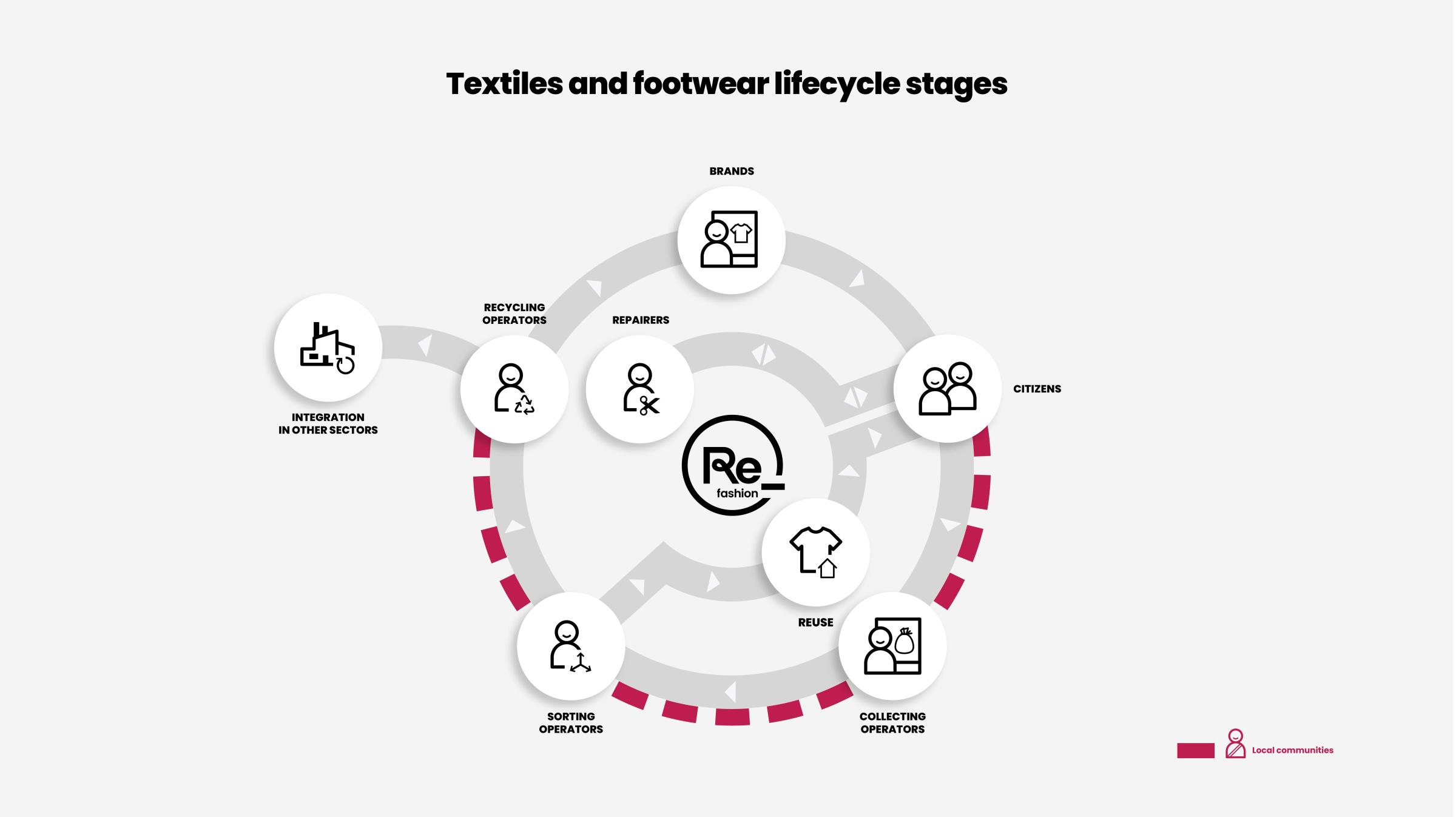
Who are we?
We are an eco-organization, i.e. a private non-profit company approved by the public authorities and financed by the eco-contribution paid by our members.
We ensure the prevention and the management of the end of life of clothing textiles, household linen and shoes put on the French market by supporting the collection, the repair and the re-use.
We help brands to engage in an eco-design approach and support downstream actors to develop the recycling industry in France.
Our pillars
Accelerate the transformation of the industry towards a circular economy
Focus on the Textile Sector
In France in 2021, the textile sector of clothing, household linen and shoes represents 3.25 billion pieces. That is nearly 12.25 kg of textile and footwear per year and per inhabitant (Refashion, 2023).
In constant growth, the linear model of the textile industry, which consists in extracting, producing, consuming and throwing away, shows however its limits in front of the climate crisis. Indeed, representing 4 billion tons of greenhouse gas emissions, or 8% of global emissions, the clothing sector is one of the most polluting in the world (ADEME, 2021).
This must be an opportunity to converge collectively towards a more virtuous model, capable of addressing the preservation of the environment and the climate while contributing to the competitiveness of companies.
Facilitate, contract, support, contribute and accompany

Alongside the other Extended Producer Responsibility (EPR) sectors, we implement the ambitious policy of the Ministry of Ecological Transition within the framework of the AGEC law by offering tools, services and information that facilitate and accelerate the transformation of the sector.
We intervene at all stages of the life cycle to accompany the actors of the sector towards the circular economy.


